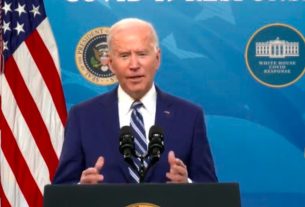Today, the government will finally introduce the long-awaited Online Safety Bill into Parliament. The legislation is to tackle harmful online content and introduces tough sanctions for big tech corporations for failing to cooperate with Ofcom, the UK’s internet regulator. Under the new regulations, tech giants will be obliged to protect children as well as ban unlawful online activity. The bill allows for the criminal prosecution of big tech executives for failure to eliminate a wide range of content including cyber flashing, the promotion of self-harm, cyber-bullying, and pornography. Critics of the bill are already out in force pointing out serious legislative weaknesses. Failure to protect free speech and, in essence, leaving it up to big tech firms to set standards are but some of a whole host of criticisms aimed at the new bill.
Online Safety Bill nearly three years in the making
The legislation has been a long-time in the making after the publication of its first draft in April 2019. But the original draft was considered to fail to reach far enough. In May 2021, the bill’s name was changed to Online Safety Bill with a joint committee of members of the House of Lords and MPs scrutinising it. Key among the recommendations was the banning of access to pornography for children, the duty of big tech to appoint safety controllers, the inclusion of fake ads and scams, as well as the option for users to forward complaints about platforms directly to the ombudsman. Furthermore, the committee advised that the bill should also cover potentially harmful algorithms. The Law Commission also submitted a range of recommendations combating the distribution of harmful misinformation, unwanted naked images, and content inciting gender-based violence.
Over the last few months, the bill has seen many additions. The Department for Digital, Culture, Media and Sport added several offences such as sexual exploitation and people smuggling, suicide and self-harm facilitation or promotion, revenge porn, hate crime, and the sale of weapons or illegal drugs. This month, the DCMS also said the platforms will now be obliged to ban romance scammers and investment fraudsters.
Many issues remain. Some feel online anonymity should also have made it into the bill, while others cast doubt on the bill’s ability to live up to expectations.
Free speech under threat by bill civil rights group fear
For news outlets, the bill has the potential to allow tech giants to censor legitimate content. As it will be up to them to set standards and police them, news bosses fear that the tech giants may remove content for fear of sanctions. Even Nadine Dorris herself admitted that the new laws do not sufficiently protect media outlets from big tech censorship. Responding to the news publishers’ campaign to be exempt from the Online Safety Bill, Dorris said the government had ‘every intention’ to protect free speech and that she would never push for laws that ‘threaten freedom of expression’.
As the bill stands, news sites are exempt when it comes to their website but not across their social media channels or in searches. Furthermore, tech giants will have to remove ‘legal but harmful’ content or face penalties. Although news outlets are to have a fast-track appeals process available to them, they fear that even a fast turn-around would see stories only appear when they are no longer newsworthy.
News bosses fear that the big tech corporations will set their algorithms so strictly that it will be impossible to publish certain content. Last night, a news executive told the Daily Mail:
“Social media sites will have to police everything by algorithm, which they will set as cautiously as they can – particularly as those in charge could face criminal sanctions.
“Algorithms don’t understand context – they couldn’t necessarily distinguish between a terror video and a news report of a terrorist incident.
“The fear is that entirely legitimate news content will be taken down, and woke tech company executives in California will be deciding what news the British public can and can’t read.”
But Dorris has defended the bill and promised that the legislation would protect freedom of speech:
“The day this legislation comes into effect, there will be considerably stronger protections for free speech. There are no extra protections for journalists online. Under this Bill, there will be.”
Big Brother Watch UK fears Online Safety Bill will have the opposite effect
The bill has come in for a barrage of criticism by Big Brother Watch UK. In an article published two weeks ago, Silkie Carlo, Big Brother Director, writes that the bill ‘will create new rules for online speech in the image of Silicon Valley, and in doing so, rewrite the rules for free speech in Britain.’




